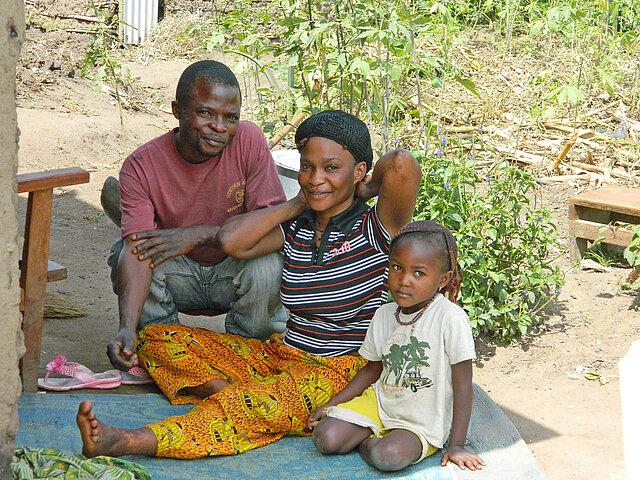In the middle of heavy traffic in Bukavu, Dr Guillaume Mapendo drives to see his patient Kasongo B., whose kidney no longer works properly because his diabetes had gone untreated for many years. "Dr Guillaume helps me a lot as a family doctor, but my family and I don't know how to pay him anymore. I don't have health insurance. If I can't work and earn money, I won't get medicine and will eventually die from the disease," Kasongo B. states. Guillaume Mapendo, who cares for many chronically ill patients in the city of Bukavu, is also at a loss: "Sometimes I don't charge for my home visits, but my family also wants to live and I need school fees for my children".
A lack of health financing repeatedly leads to people dying or well-trained professionals leaving their country because they have no prospects there. That is why DIFÄM, in addition to training professionals and building and equipping health facilities, also works to ensure that people can afford health care and that those who provide it can live on their salaries. This is where digitalisation helps: people can not only send funds via mobile phones, but also create a kind of health savings account. Whenever possible - daily, weekly - they can deposit even small amounts and then receive medical care in hospital or at a doctor's office. Without having to worry about not being able to pay.
In Congo, many people, including Kasongo B., already pay with their mobile phones. This technology is now to be used to save for health and pay for health services with the credit. The phone company kiosks can be found everywhere. People can use them free of charge. Health facilities providing treatment can be sure to receive payment immediately. Third parties can support people directly by making deposits, and community-based health insurance, like the one Difäm promotes in eastern Congo, can also be integrated into the system.
What DIFÄM promotes:
- Building a network of church and government structures for the establishment of a health savings account.
- Technical and administrative background for the personal health savings account
- Monthly support for a chronically ill person in the test phase so that treatment can be afforded
- Raising awareness among the population about the possibilities of a health savings account

